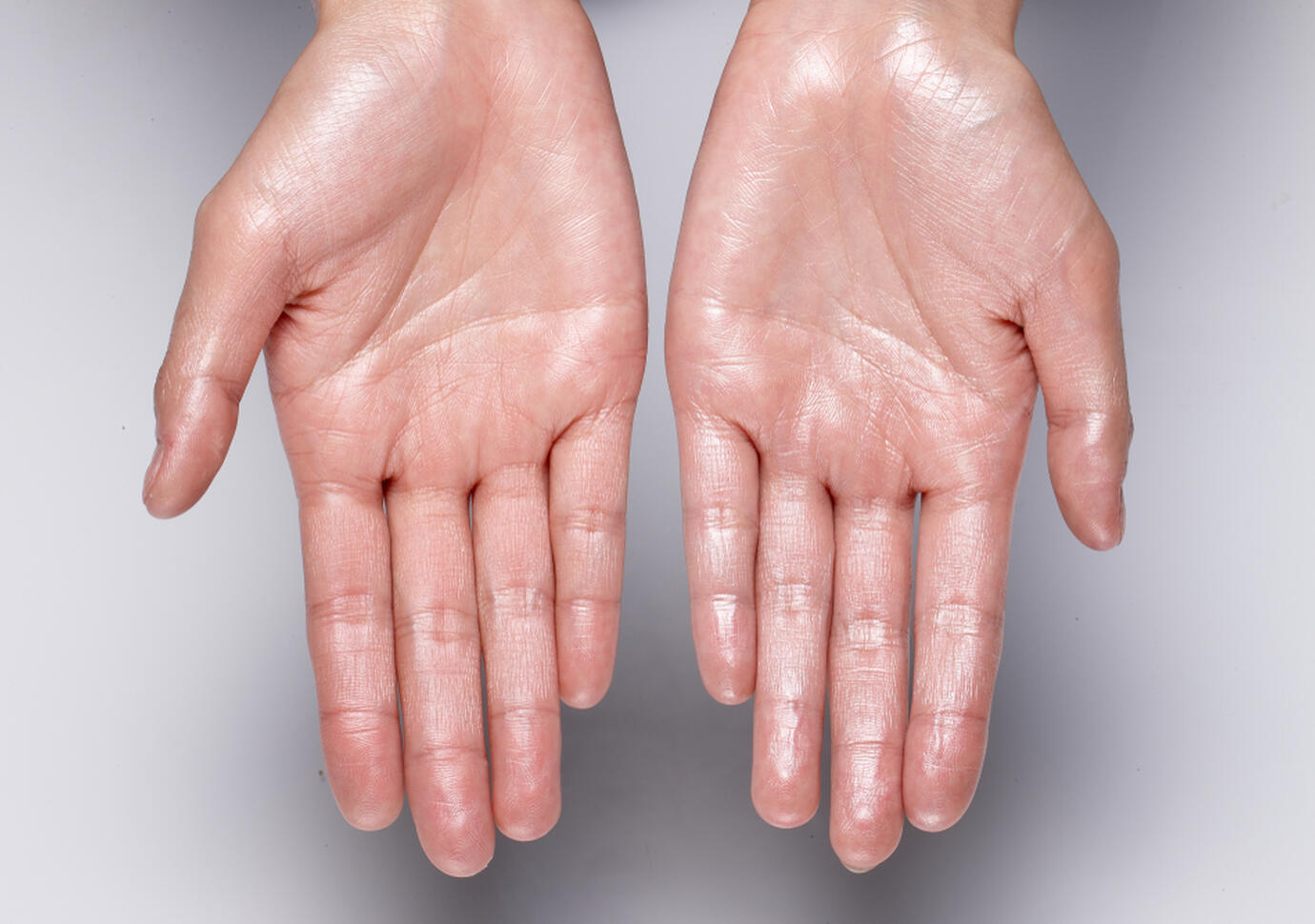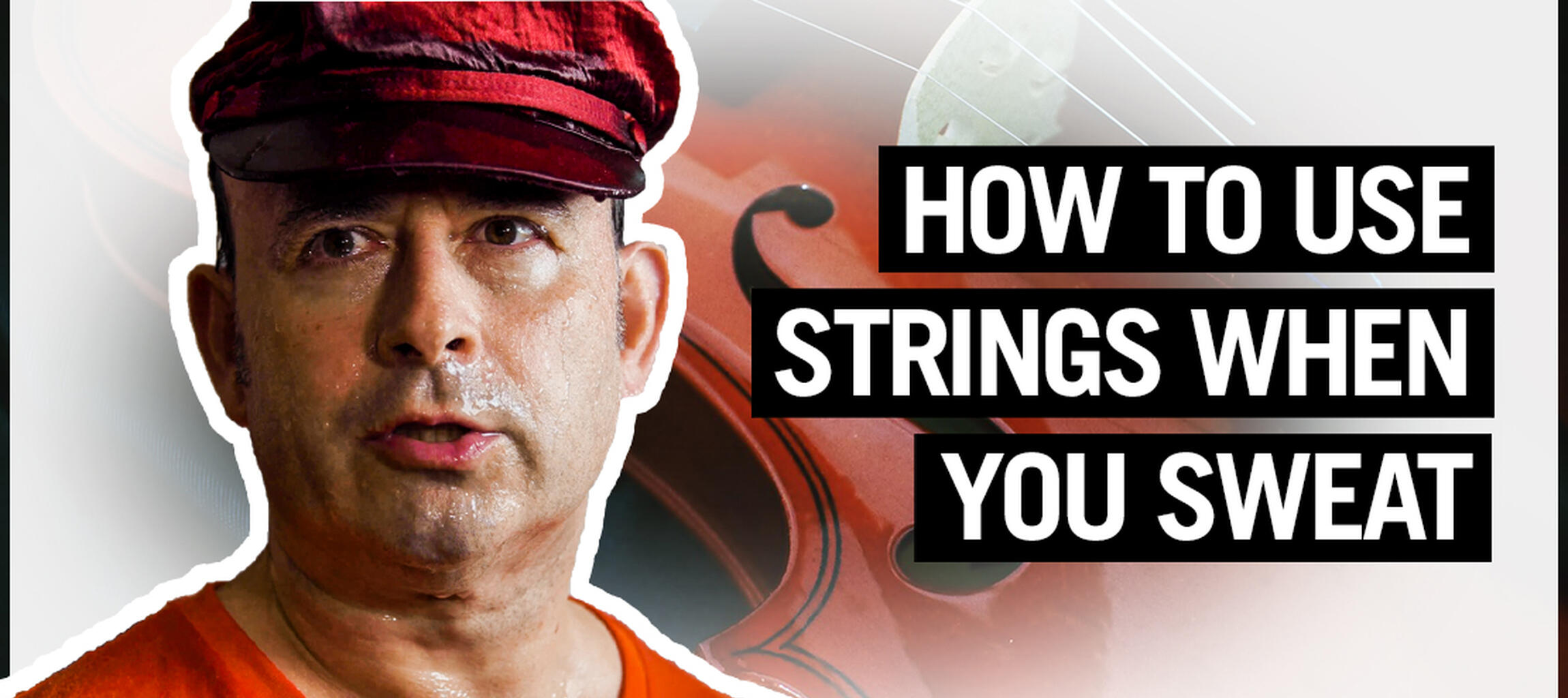Have you spent years mastering the art of string playing but still know little about the ideal way to handle your tools? Are you curious to learn more about the possibilities a high-performance string offers and do you want to optimize your performance in a few simple steps? Stringtelligence offers you an exclusive insight into the science of strings. Find widely unknown tips and tricks of the trade to perfect your sound and elevate your playing to an unexpected level! More than 20,000 words and 19 video tutorials in over 90 chapters: This is string know-how at its best!
Which strings should I choose if I get sweaty hands?

Even a little perspiration can cause your string to give up too fast! They unravel, get tarnished, go dark, get thicker and perfectly smooth shifts become harder when running over the worst of the damaged areas. You know what we’re talking about? Then you are probably using an aluminum A- and/or D-string. It’s a well-known problem that aluminum-wound strings can corrode and unravel quickly. Why? Aluminum reacts with the sweat of your fingers.
The corrosion-challenge in a nutshell:
Sweat is aggressive, breaks down the outside of the string and soaks into the layers of the winding. That’s why cleaning the string is not really helping to stop the corrosion from the inside. It’s like dental decay slowly destroying the tooth inside out. We have approached this problem from two different angles to give our strings double power when it comes to extending their playing life.
We wanted to get to the bottom of this, so we worked together with the dermatology department of the General Hospital in Vienna to analyze the composition of perspiration within different climates and age groups and in regard to other influences like stress and nutrition, to better apprehend the effect it has on different materials. By understanding the human side of the problem, we were able to find a technical solution within the string making process.
Don’t sweat it! First, we tested a variety of new as well as established materials to compound the ideal aluminum alloy making the string more perspiration resistant and stopping sweat from soaking in in the first place. After playing the string for a while the top layer can wear off a little. Therefore, step two was to develop and incorporate a protective interlayer to avoid sweat from penetrating the string on the inside altogether.
Thomastik-Infeld string alternatives for violin:
To extend the life span of your strings we recommend using a silver-wound synthetic core D-string and a chrome-wound steel core A-string. The steel core A-strings comes with pros and cons - it gives you better sweat resistance and a very direct bow response, but the increase in tension will change the overall sound of your instrument and the sound is typically less malleable, connecting well to the E-string but creating more of a gap to the D-string.
For violin A-strings we suggest using the chrome-wound string Vision® VI02B, Dominant Pro® DP02B or Rondo® RO02A. For a darker sound, you may use the chrome-wound viola A-string Peter Infeld® PI21 (included in set PI200). When you are aiming for a more brilliant sound, we recommend the chrome-wound viola A-string Vison® VI21 (part of the VI200 set). If you use a viola A-string on your violin shorten it for about 5 cm (2 in) on the peg end side. By the way, since all these recommended A-strings have a steel core, so keep in mind to use a fine tuner!
With all these strings we have brought one of our latest patents to life. By incorporating a special interlayer, we were able to increase the corrosion protection even more and managed to reduce the metallic sound at the same time. The result: these strings keep their warm timbre and dark sound for a long time, offer a great response and the tonal lifespan is significantly longer.
For violin D-string we suggest the silver-wound versions that are available in most of our product lines such as Vision Solo® VIS03A or the silver-wound Peter Infeld® PI03A. These strings boast stability under changing climatic conditions, and they are not affected by hand perspiration.
E-strings don’t unravel but they can go dark or tarnish and the surface can get rough due to perspiration. When having these problems, trade your E-string gold-plated strings like Peter Infeld® PI01AU, Dominant Pro® DP01AU or Rondo Gold® RG01AU, or platinum-plated strings like Peter Infeld® PI01PT or Dominant Pro® DP01PT. An additional option is the chrome-steel Dominant® E-string 129. All of them stand the test of time and perspiration. The difference between those three strings: gold-plated strings have a warm sound while still retaining great clarity. Platinum-plated strings convince with the same clarity but offer more power at the same tension level. Chrome-plated strings are a good budget solution to platinum-plated strings. They are more powerful than gold-plated strings, but also a bit more metallic sounding.

BACK

 ESPAÑOL
ESPAÑOL